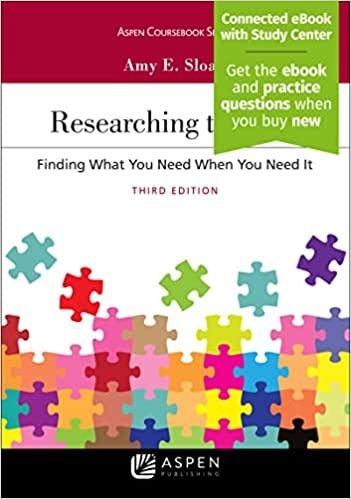Question
The Computer Fraud and Abuse Act (CFAA) imposes criminal penalties on whoever knowing and with the intent to defraud accesses a protected computer without authorization,
The Computer Fraud and Abuse Act (CFAA) imposes criminal penalties on whoever "knowing and with the intent to defraud accesses a protected computer without authorization, or exceeds authorized access, and by means of such conduct furthers the intended fraud and obtains anything of value." Based on United States v. Nosal (844 F..3d 1024 (9th Cir. 2016) consider the following. X's subscription to a streaming service expires. X wants to see a concert streaming on the site and asks Y to let X use Y's password. X uses Y's password and watches the concern. Was X in violation of the CFAA? Rely on the decision in Nosal. What would the prosecutor argue? How would the defense respond based on dissent by Judge Reinhardt? Would Y be criminally liable if Y copied the file of the concert and later sold the copy to X? In answering this part of the question you should consult the Supreme Court decision in Van Buren v. United States discussed in cases and comments in the textbook.
Step by Step Solution
There are 3 Steps involved in it
Step: 1

Get Instant Access to Expert-Tailored Solutions
See step-by-step solutions with expert insights and AI powered tools for academic success
Step: 2

Step: 3

Ace Your Homework with AI
Get the answers you need in no time with our AI-driven, step-by-step assistance
Get Started


